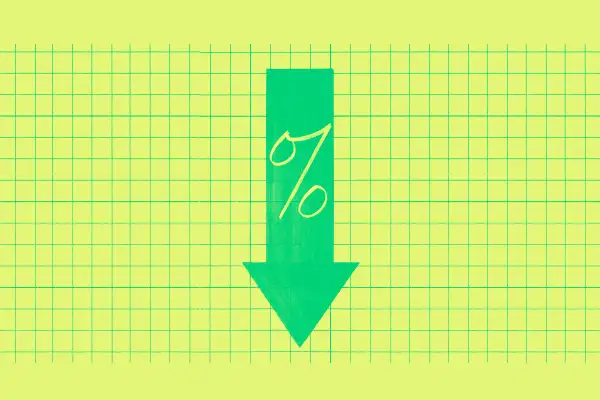Mortgage Rates Have Hit Historic Lows. Here's How to Decide If You Should Refinance

Fears of the coronavirus may be roiling the stock market. But for many American homeowners there's a silver-lining: Mortgage rates have fallen to near-record lows.
The average rate for a 30-year fixed-rate mortgage was 3.19% for Tuesday, according to Mortgage News Daily. That was just a hair above the record low 3.13% that the trade publication, which has tracked daily rates since 2009, reported for Monday.
The national average rate for a five-year adjustable rate mortgage was 2.85%, and for a 15-year fixed rate it was 2.91%, according to Mortgage News Daily.
Rates for 30-year fixed mortgages have fallen steadily since peaking at 4.94% in November 2018. Mortgage rates are closely tied to the yield on the 10-year U.S. Treasury note. Bond market rates have been sliding for months, as investors worry about slowing global economic growth and, in recent weeks, disruptions caused by the spread of the deadly coronavirus.
On March 3rd, the Federal Reserve announced a surprise half-point cut to its benchmark short-term interest rate. The move quickly rippled though the stock and bond markets, sending longer-term interest rates lower too. By midday the yield on the 10-year Treasury note had slipped below 1% for the first time ever, a likely sign that mortgage rates could fall too.
Lower mortgage rates have lead to a spike in refinancing activity, with loan applications up by more than double from last year, according to the Mortgage Bankers Association.
When It Pays to Refinance
Homeowners who bought their homes in 2018 or early 2019 could potentially save hundreds of dollars a month by refinancing. A homeowner with a $322,000 mortgage, in line with national average, and paying 4.94% could cut their monthly payments by more than $250 by locking in today's rates, according to our mortgage calculator.
Of course, refinancing isn't for everyone. Fees — for an attorney, an appraiser and more — can be hefty, typically amounting to $3,000 to $5,000. So make sure you plan to stay in your house long enough to cover the costs. For many borrowers that's usually about five years.
Also be aware that refinancing from an old 30-year fixed mortgage to a new one essentially restarts the clock on your mortgage term, meaning you will have longer to pay off your loan.
One rule of thumb: Start to think seriously about refinancing if you can lower your interest rate by at least one-half of one percentage point, Marilyn Capelli Dimitroff, a certified financial planner in Bloomfield Hills, Mich, previously told Money. Less than that, and it's probably not worth it.
More from Money:
Best Mortgage Refinance of 2020
The Dow Just Dropped 1,000 Points on New Coronavirus Fears. Here's What to Do If You're Worried

